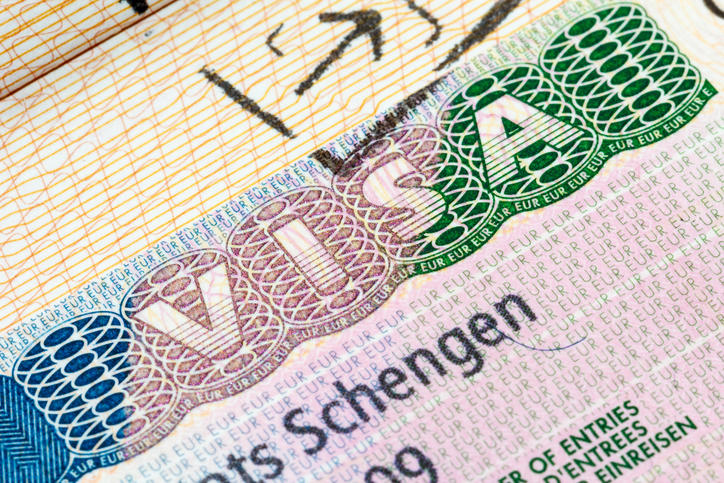The Schengen short-stay visa

The Schengen short-stay visa lets you enter and remain in a country in the Schengen area for a maximum period of 90 days. Depending on your nationality or your situation, you may not need it.
What does the Schengen short-stay visa allow?
The Schengen short-stay visa (visa Schengen court séjour) lets you enter and remain in a country in the Schengen area for a maximum period of 90 days. It may apply to an uninterrupted stay of 90 days or several stays with a cumulative length of 90 days. As with tourism and business, taking a short training programme, doing an internship, working after obtaining a temporary work permit are valid reasons for being granted a Schengen short-stay visa.
The Schengen single entrance short-stay visa (visa Schengen court séjour à une seule entrée) is only valid for one trip. If it allows two or more entrances, it is a travel visa which is valid for six months to five years. It authorises one or more successive stays that must not exceed 90 days total over a maximum period of 180 days.
No formalities are required, either on arrival or on departure. After the 90 days, you must leave the Schengen area. The Schengen short-stay visa is renewable, but you will have to wait six months to submit a new request.
Unlike a long-stay visa, it does not authorise you to live in France.
Who does the Schengen short-stay visa apply to?
Nationals of many countries are not required to have a Schengen short-stay visa to enter and stay in a country in the Schengen area to a maximum of 90 days, meaning:
- citizens of the European Union, the European Economic Area and Switzerland;
- nationals from the following countries, regardless of the reason for the stay: Albania*, Andorra, Antigua and Barbuda, Argentina, Macedonia, Bahamas, Barbados, BosniaHerzegovina*, Brunei, Canada, Chile, Colombia, Costa Rica, Dominica, El Salvador, United Arab Emirates, Grenada, Guatemala, Honduras, Israel, Malaysia, Mauritius, Monaco, Montenegro*, Nicaragua, New Zealand, Palau, Panama, Paraguay, Peru, Saint Kitts and Nevis, San Marino, Saint Vincent and the Grenadines, Saint-Lucia, Samoa, Serbia*, Seychelles, Taiwan (with a passport bearing the number of the identity card), East Timor, Tonga, Trinidad and Tobago, Uruguay, Vanuatu and Vatican;
(* holders of biometric passports only)
- nationals from the following countries, on condition they have a work permit if they are doing a paid activity: Australia, Brazil, South Korea, United States, Japan, Mexico, Singapore and Venezuela;
- holders of passports from the special Chinese administrative regions: Hong Kong and Macao;
- holders of a current residency permit in France;
- holders of a residency permit granted by a State applying the Schengen agreement;
- holders of a longstay visa granted by another state in the Schengen area;
- holders of certain travel permits granted by an EU member state (residency permit stating "EU family member" or "Longterm EC resident");
- holders of “British Nationals Overseas", "British Overseas Territories Citizens", "British Protected Persons" or "British Subjects" passports;
- holders of a special card granted by the Ministry of Foreign Affairs to personnel from a diplomatic and consular mission.
If you do not fall in any of these categories, you must obtain a Schengen short-stay visa to enter and stay in France. Contact the French consular authorities or those of another country in the Schengen area to submit your request.


